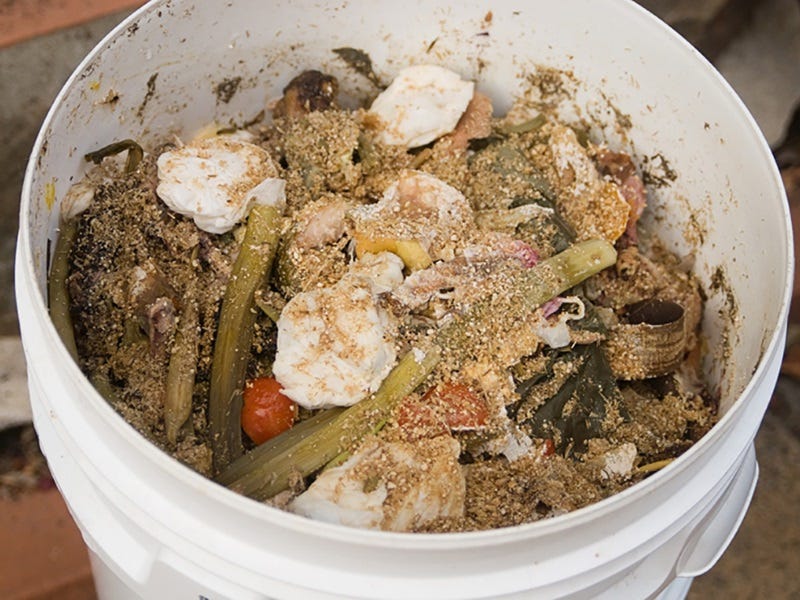What is Bokashi? A Indoor Composting Story


A common theme I have found in the interviews I have conducted about gardening is the belief that bugs are good. For an outsider, someone with no gardening experience, this seems counter intuitive, and my attitude going into this was, "See bug; kill bug."
Healthy Ground, Healthy Garden
However, when you interview Master Gardeners and there is some common ground, you tend to listen. I interviewed Master Gardener Hattie Lewis at the North 40 location in Great Falls, MT. Hattie is on the board of city parks. When Hattie sat down with me, I was struck by how closely her bug lecture confirmed the same topic that Joy covered.
1. 95% of all bugs are good bugs!
2. Don't know if a bug is good or bad? Grab it and take it to the local extension office for classification!
3. "If you eliminate good bugs, you open your garden up to bad things the best kind of garden is one that is naturally hardy and pest free!"
4. Want good advice? Be careful where you get your information, only visit .org and .edu sites!
5. Put banana peels in your garden they will attract good bugs to combat bad bugs.
While some of her information was about pest management, she was also very excited to tell me about composting in the city. She lives in town where it is sometimes harder to compost due to space restrictions. I asked her about this, assuming she meant traditional composting "How does that work with your neighbors? Do they ever complain?" She looked at me like I was from a different planet "They don't smell anything ; I keep it in my house."
Indoor Composting: The Bokashi Method
I've become accustomed to being astounded working and writing for North 40 Outfitters, from logging in Monarch to testing colostrum replacer (follow those links and check out the blogs), but being told that this Master Gardener kept her compost in her house I thought Ms. Hattie Lewis was enjoying a joke at my expense.
Of course this wasn't the case and this is where we kind of went off the deep end on Bokashi composting. A type of layering composting you do in a sealed five gallon bucket. "You use this method and you can keep your compost in your pantry!"
So without further ado, Bokashi.
What is Bokashi + How to become an Indoor Composter
Bokashi is from the Japanese and means "fermented organic matter." This includes meat and dairy refuse. It is a simple process whereby you layer your organic refuse with an inoculant a fermenting agent and a simple carbohydrate like molasses or white/brown sugar. You can make this fermenting agent from materials you can find at most N40 stores. Find Hattie's Bokashi the recipe here.
Once you collect your refuse and layer your Bokashi mix, simply take it out into your garden and dig a trench at least 6" deep. Bury your compost for 4 weeks, and you have some of the best compost you can make in the city. A natural way to reduce household organic waste which averages 20%-40% of all waste delivered to the landfill, and a great way to improve your soil health.
Read more about the perfect soil mix, and how to growth blueberries in places like Montana.
Before the interview was over Hattie went back and gave me some other choice tidbits to relate.
1. Be sure to have your soil analyzed at your local extension office this will tell you what type of soil to use and keep you from making your soil "too hot."
2. Bees if you have an opportunity to have bees in your garden, take it! "Pollinating in the morning with a paintbrush is not something you want to do let the bees do it for you!"
3. Use vinegar to kill weeds there is no salt and no leeching.
4. Plant focal point plants to attract bad bugs away from your prime flowers or plants!
5. Most importantly, buy your plants from a reputable supplier these plants come hardy and ready to integrate into a chemical free garden. You don't need chemicals to make good plants grow "Just add water!"
Click here to get a homemade Bokashi recipe: Lawn & Garden eMag
